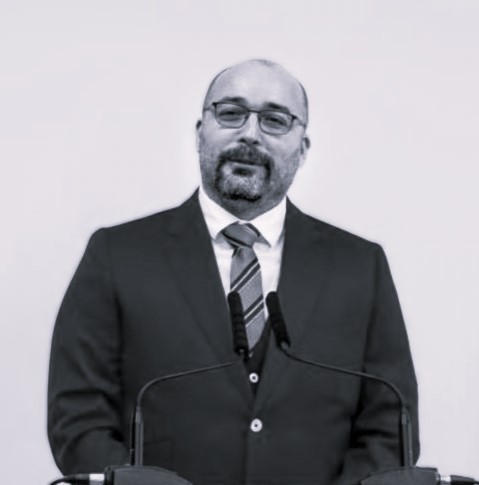Company Name
VOLS-PARTNERS
Activity
Promote the construction and operation of CO2-free water and renewable energy production facilities, including wind, photovoltaic, hydraulic, and combined cycle plants, as well as the development of technical, consulting, and advisory activities in areas related to these fields.
CIF
B30915813
Sector
Water treatment
Address
Santiago Ramón y Cajal, 111, Bajo - CARTAGENA
EPM Joining Date
03/07/2025
Creation Date
05/12/2017
Founders JOSÉ DAVID MORENO SÁNCHEZ
Auditor
Bailen 20, S.A.P.
Investors email contact
jose.moreno@vols-partners.es
Presenting Partner
Abbaco Markets
Company profile
The objective of Vols-Partners is to address the historic water deficit and tackle the effects of climate change on water resource availability in a region (Murcia) that has become Europe’s largest producer of fruits and vegetables, through the La Campana desalination plant project, which will be developed in collaboration with the main players in the sector.
Water for everyone, always
José David Moreno Sánchez
CEO


On the Road to BME Growth
- 01/06/2025 - Registered Advisor
- 06/11/2025 - Transformation in PLC
Relevant data
| (thousand of Euros) | 2024 | 2025* | 2026* | 2027* |
|---|---|---|---|---|
| Net worth | 99.900 | 536.670 | 1.094.450 | 1.852.230 |
| Net business turnover | 00 | 75.000 | 600.000 | 1.320.000 |
| Financial debt | 00 | 498.000 | 4.654.000 | 6.874.000 |
| Ebitda | -50 | 71.000 | 551.000 | 1.291.000 |
| Net Profit | -63 | 39.370 | 157.780 | 441.180 |
| Average number of employees | - | 25 | 50 | 75 |
| * Proyection | ||||
Business Model
The La Campana project is based on an integrated infrastructure model that combines the production and distribution of water and energy. It includes a desalination plant with a capacity of 600 hm³ per year to supply the agricultural sector, a 2,700 MW photovoltaic plant, and an 834 MW combined cycle power plant that ensure energy self-sufficiency and allow for surplus sales. The project also incorporates hydrogen generation and use as an energy vector. It operates through direct sales of desalinated water at €0.59/m³ and energy at €60/MWh (solar) and €120/MWh (combined cycle). The model is supported by long-term contracts of up to 50 years with farmers and by energy sales on the wholesale market, with the option to establish Power Purchase Agreements (PPAs).
Competitive advantage
The project guarantees sustainable water security in the face of the progressive decline of the Tajo-Segura transfer and growing restrictions on the use of aquifers. In terms of energy, it ensures self-sufficiency through the combined use of renewable sources and combined cycle, which reduces operating costs and dependence on external supplies. It also stands out for its scale and efficiency, as it is one of the largest desalination plants planned in Europe, integrated with energy generation systems. In addition, its strategic location, far from environmentally protected areas and close to key agricultural areas, reinforces its technical and operational viability.
Scalability
The model is highly scalable, as it can be replicated in other regions facing water stress and adapted to various territorial contexts. Its modular infrastructure—integrating water, energy, and hydrogen—allows for phased growth based on demand and available resources. Additionally, it offers the flexibility to expand both water and energy production and distribution. With an estimated return on investment (ROI) above 21% and long-term contracts in place, the project is particularly attractive to private investors and infrastructure funds.

